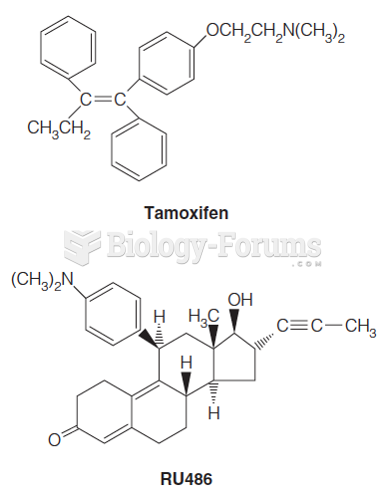|
|
|
Asthma attacks and symptoms usually get started by specific triggers (such as viruses, allergies, gases, and air particles). You should talk to your doctor about these triggers and find ways to avoid or get rid of them.
The heart is located in the center of the chest, with part of it tipped slightly so that it taps against the left side of the chest.
For pediatric patients, intravenous fluids are the most commonly cited products involved in medication errors that are reported to the USP.
Historic treatments for rheumatoid arthritis have included gold salts, acupuncture, a diet consisting of apples or rhubarb, nutmeg, nettles, bee venom, bracelets made of copper, prayer, rest, tooth extractions, fasting, honey, vitamins, insulin, snow collected on Christmas, magnets, and electric convulsion therapy.
The calories found in one piece of cherry cheesecake could light a 60-watt light bulb for 1.5 hours.







